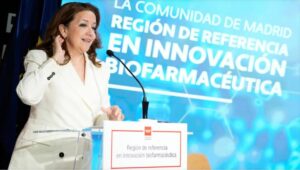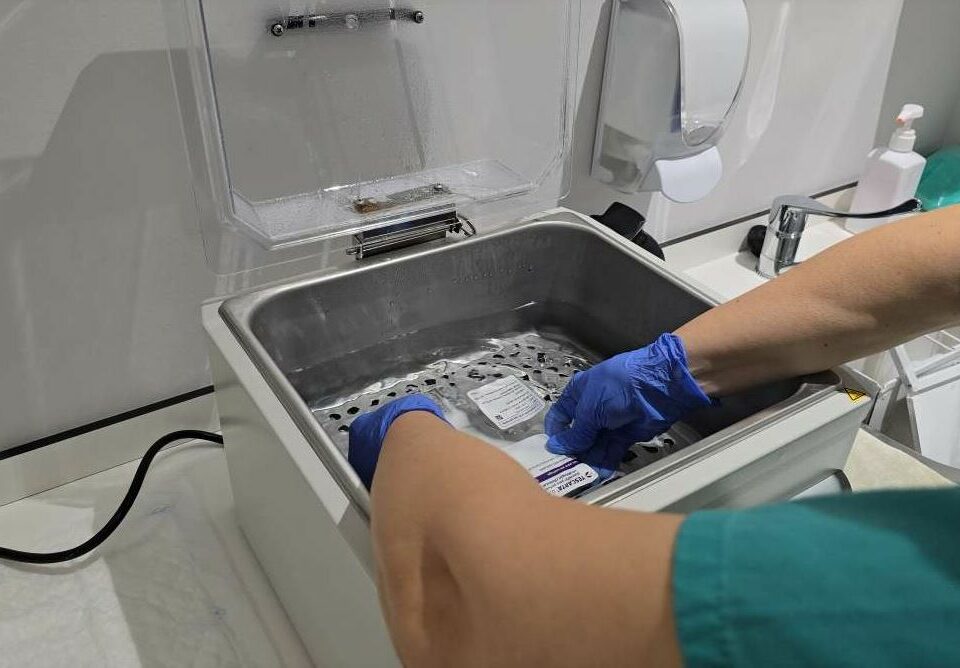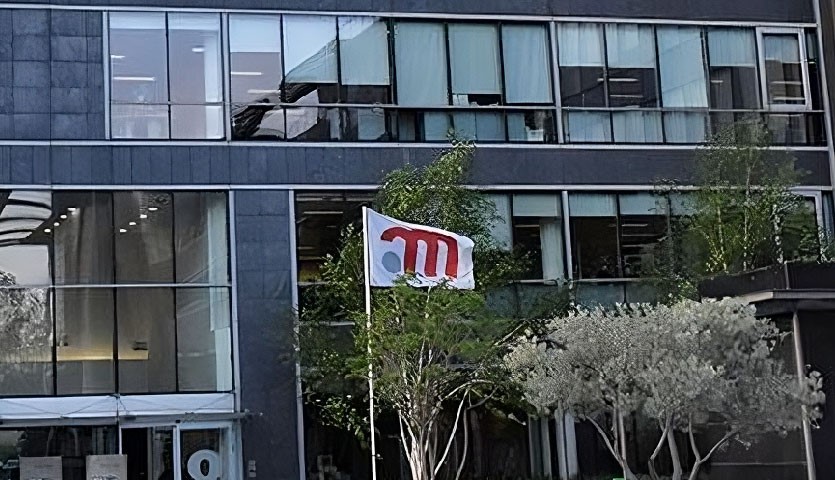The Community of Madrid aspires to become the “Silicon Valley” of the pharmaceutical sector.

Madrid launches a pioneering strategy to become a global benchmark in biopharmaceutical innovation.

consalud.es
On Monday, the Community of Madrid presented its 2025-2028 Sector Strategy to strengthen the region’s leadership in biopharmaceutical innovation and boost both employment and investment. The initiative, a first in Spain, seeks to position Madrid as a European and global benchmark in a sector that is strategic for economic development, research and healthcare. The Community of Madrid hopes that the plan will consolidate the region as an engine of economic and technological transformation, while also boosting the quality of public services.
The presentation, held at the headquarters of the Regional Ministry of Economy, Finance and Employment, was attended by the regional minister for this area, Rocío Albert, and the regional minister for Health, Fátima Matute. The Community of Madrid hopes that public-private collaboration and the promotion of biomedical research will act as drivers of social and economic transformation.
Matute defines the Strategy as ‘a pioneering and unique strategic plan that will position the region as a global benchmark in biopharmaceutical innovation’.
For his part, Albert emphasises that this is a ‘pioneering strategy in Spain’ that places the region ‘at the forefront of Europe in a sector with enormous potential’. “We aspire to become the Silicon Valley of the pharmaceutical sector, and we have everything we need to do so. We have universities that conduct research and provide training, cutting-edge research centres, leading hospitals—the best in Europe—and a business fabric that ranges from multinationals to small and medium-sized family businesses,” she says.
La consejera de Economía de Madrid añadió que este ecosistema generará más puestos de trabajo cualificados, riqueza para la región y el país, y garantizará los mejores servicios públicos para los madrileños y españoles. También destacó la importancia de la colaboración entre la industria, las universidades y los hospitales para impulsar la innovación.
La consejera señala que la región cree en la libertad, en la industria y en la colaboración público-privada, y que se trabajará para que el sector se desarrolle en un entorno seguro y estable.
Igualmente, Albert pone en valor el papel de las 13 fundaciones de investigación biomédica del SERMAS, que gestionan la actividad investigadora de hospitales y centros asistenciales, así como siete de los ocho institutos de investigación sanitaria acreditados: IdiPAZ, IRyCIS, IiSGM, i+12, IdISSC, IIS Princesa e IIS Puerta de Hierro-Segovia de Arana (IDIPHISA), junto con el Instituto IIS-FJD. Desde la Comunidad de Madrid aspiran a que este entramado consolide la posición de Madrid como referente en investigación y ensayos clínicos.
PUBLIC-PRIVATE PARTNERSHIP
Along the same lines, Matute defines the Strategy as ‘a pioneering and unique strategic plan that will position the region as a global benchmark in biopharmaceutical innovation’. The minister emphasises that, although Madrid is already a benchmark in Europe, the Community also aspires to be a global leader.
Matute highlighted the importance of public-private collaboration with Farmaindustria and its member companies, which enable ‘great people to care for people’ and contribute to the region having the best biosanitary indicators, the highest life expectancy and professionals who bring innovations every day.
The Strategy includes 15 specific projects aimed at facilitating access to innovation, accelerating the incorporation of new medicines, encouraging therapeutic adherence and promoting medical training.
The Community of Madrid is also seeking to bring stability to the pharmaceutical industry in a context of geopolitical upheaval. Matute points out that the region believes in freedom, industry and public-private collaboration, and that it will work to ensure that the sector develops in a safe and stable environment, because ‘health comes first’.
LEADER IN THE PHARMACEUTICAL INDUSTRY
The Strategy includes 15 specific projects aimed at facilitating access to innovation, accelerating the incorporation of new medicines, encouraging therapeutic adherence and promoting medical training. It also seeks to strengthen clinical and preclinical R&D, extend trials to primary care and integrate digitalisation and artificial intelligence. The Community of Madrid hopes that the plan will encourage industrial investment, employment and the attraction of talent, promoting the growth of new companies with a focus on professional qualifications and internationalisation.
Madrid aspires to consolidate its European leadership in clinical trials and its global reputation in biopharmaceutical innovation, positioning itself as a preferred destination for investment in the sector.
Madrid is currently home to 400 biopharmaceutical companies, representing 22% of the companies in the sector in Spain and generating 24,000 direct jobs. In 2023, these companies achieved a turnover of €5.1 billion and accounted for 42% of national exports of medicines and products. The Community of Madrid aims to consolidate its European leadership in clinical trials and its global reputation for biopharmaceutical innovation, positioning itself as a preferred destination for investment in the sector.





